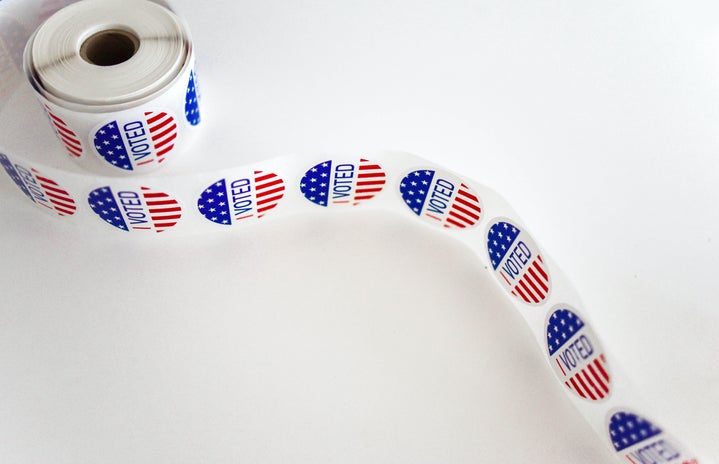Always vote when you can—even when you dislike the options.
I grew up in Rochester, NY, the birth and burial place of Susan B. Anthony. On election day voters visit the grave site of Anthony, to place their “I voted” sticker on her headstone.
The tradition serves as a way to say, “Sorry you never got to vote, thank you for fighting for my right to.”
Only 66.8% of the eligible population cast a ballot in the last U.S. presidential election. This was the highest voter turnout in the 21st century.
In any election, neither candidate will be perfect. Neither is democracy. Such is the nature of humanity.
By the time election day comes around, the candidates on the ballot are the only options. Even if you don’t fully align with either, pick one.
If you are unfamiliar with the candidates, look at their campaign website. Typing the name of the candidate followed by the position they are running for into a search engine should be all you need to find a compact list of their positions.
Imagine for a presidential election that an equal number of Democrats and Republicans are registered to vote. They all plan to vote in line with their registered party.
Now imagine only 75% of the voters for the Democratic party support their candidate while 90% of the remaining voters in the Republican party support their candidate. If everyone who does not support their party’s candidate does not vote, or votes for a third-party candidate, the Republican candidate wins.
Hearing people say “every vote matters” can be hard to swallow. Between gerrymandering, financed-based campaigns, the electoral college and whatever else frustrates Americans about how their democracy operates; it does not feel this way. Frankly, one vote will not have a significant impact. Widespread thinking that an individual’s vote does not matter, that matters.
Having only one candidate representing the party you align with, or none at all for those who choose not to conform to the limitations of two political parties, is far from ideal.
However, right now it is the system that we have. If you don’t like it, simple refusal to participate will do nothing to bring change.
Getting involved with campaigns, advocating for a demolition of the two-party system, proposing initiatives to transform the campaign’s need for finances or running for office yourself. These are ways you can bring about change.
The first time I am in Rochester on election day, no matter who I vote for, I plan to be the first person at Anthony’s grave, sticker in hand.
Always vote. If you don’t like who you voted for, do something to change it for the next time.


